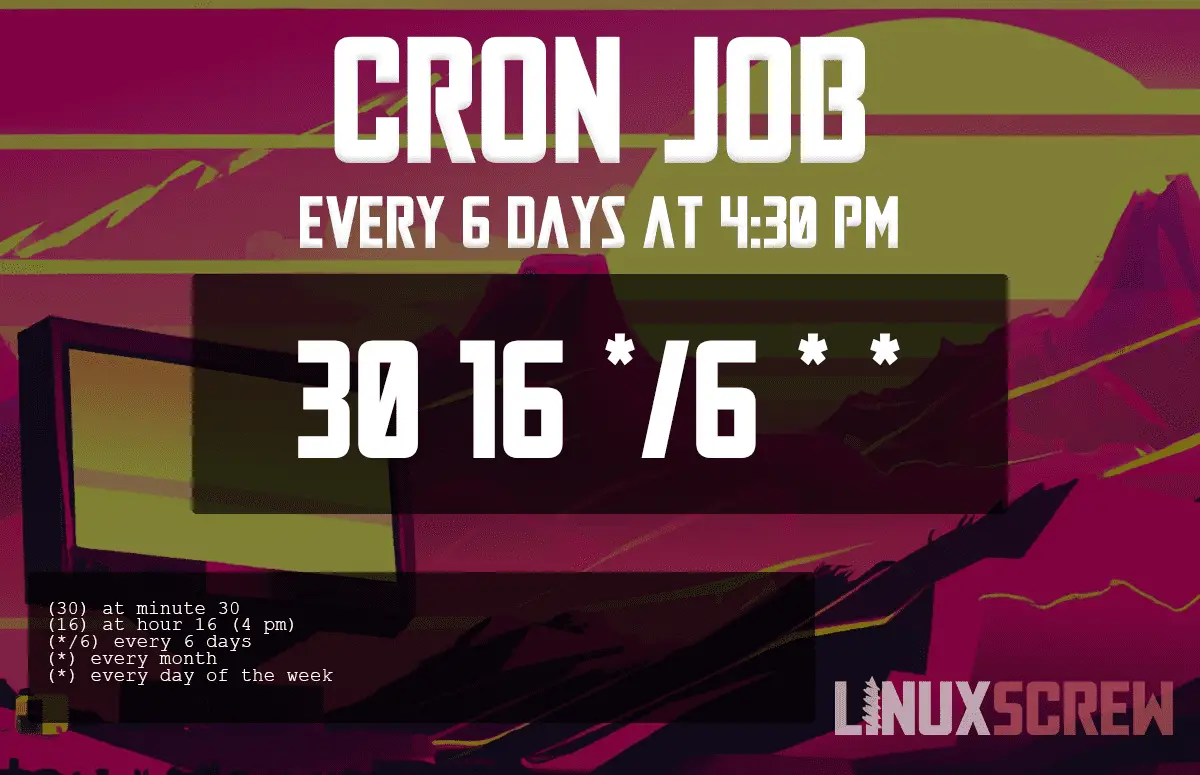This page will help you quickly and easily set up a cron job to run every 6 days at 4:30 pm.
The Cron Job/Crontab
To have your task run at this frequency, use the following cron:
30 16 */6 * *
This cron command translates to the following (in Human-Readable format):
“Every 6 days at 4:30 pm.”
What is a Cron Job & Crontab?
A cron job is a task that is scheduled to run at a specific time or interval. Cron jobs are typically used for automating system maintenance or administration tasks, such as running backups or sending email reports.
Crontab files are typically stored in the /etc/crontab file, but they can also be stored in individual user’s home directories. To edit your own crontab file, you can use the command “crontab -e”. This will open up the file in your default text editor.
Cron Fields
Every cron job uses five fields. Here is an explanation of what each field does in this cron, which runs “every 6 days at 4:30 pm“:
FUN FACT: One common use for cron jobs is to send out email reminders or notifications based on certain events (such as an upcoming deadline)..
Use Cases
You might want to set up a crontab or cron job to run every 6 days at 4:30 pm for several reasons, including:
- Sending a daily email report
- Generating a weekly sales report
- Backing up files every 6 days
Similar Cron Jobs
You might also want to run a crontab:
- every 5 days
- every 1 day
- every 9 days
- every 10 days
- every 4 days
- every 4 days at 4:00 am
- every 8 days at 3:30 am
- every 2 days at 5:30 pm
FUN FACT: Cron jobs are named after the Greek god of time, Chronos – so now you know where the name comes from!.
Wrapping Up
In this article, you learned how to set up a cron job that runs every 6 days at 4:30 pm. Please share this page with friends and colleagues if you find it useful.
If you have any questions, please don’t hesitate to comment below.
If you are looking for cron jobs that run at certain minutes, hours, days, weekdays, or months, or if you are looking for miscellaneous cron jobs, then check out our relevant sections, or visit our cron job cheat sheet for a list of hundreds of popular cron jobs.

